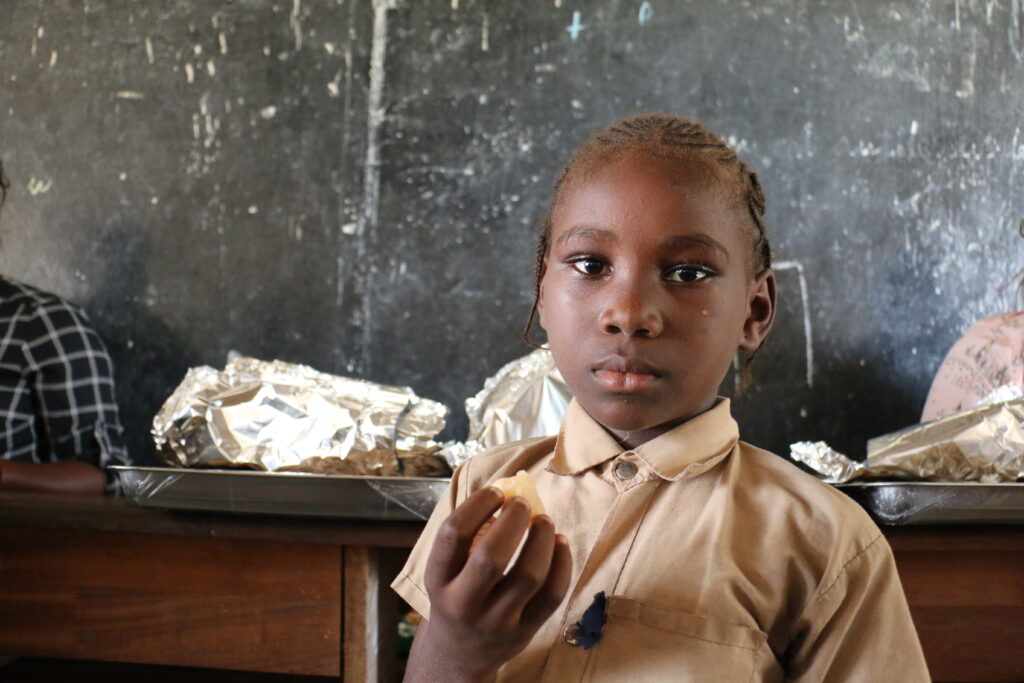
On Tuesday, 24 September, representatives from the Brazilian and Congolese governments held the fourth meeting of the Technical Committee for the “Seeds for Tomorrow” project, funded by the India, Brazil and South Africa Facility for Poverty and Hunger Alleviation (IBSA Fund). The meeting discussed actions taken so far and defined the next steps of the initiative, which seeks to strengthen food security and nutrition by connecting smallholder farmers with school feeding programs in the Republic of Congo.
Representatives presented and validated the results of the market assessment in the Republic of Congo, as well as recommendations on how to improve the Congo’s national policy framework to strengthen local food value chains, including the link between family farming and the school feeding. Members of the Technical Committee from the two governments also validated four key recommendations.
Gabriel Specht, agronomist and member of the project team, led the second part of the meeting, presenting the main findings of the study on smallholder farmers’ access to the agricultural market in the Republic of Congo. The study highlighted a paradox in the country: despite the increased importance of agriculture in the economy of the Republic of Congo, domestic food production is not sufficient to cover the food needs of the Congolese population. While the contribution of agriculture to the country’s GDP rose from 4 to 8% between 2012 and 2022, it is estimated that as much as 70% of food consumed in the Republic of Congo is imported.
The research also revealed the predominance of cassava production, which accounts for 80% of the staple food production in Congo. While cassava is widely consumed, its predominance limits diet diversification and the availability of nutrients to the population. Vegetable production has significant development potential but is still constrained by traditional manual planting techniques used by smallholder farmers.
At the end of the study’s presentation, technical recommendations were made regarding best practices to address the challenges identified in the country, such as strengthening rural technical assistance, investing in rural infrastructure, supporting agricultural production diversification, and empowering women farmers by ensuring their access to land, credit, and technical assistance.
About the Project
The “Seeds for Tomorrow” project is an initiative of the World Food Programme’s (WFP) Centre of Excellence against Hunger in Brazil, WFP Congo in partnership with the Government of the Republic of Congo, the Government of Brazil, and the United Nations Office for South-South Cooperation (UNOSSC). Launched in June 2023, it is funded by the India, Brazil and South Africa Facility for Poverty and Hunger Alleviation (IBSA Fund).
The project’s objective is to equip the Ministry of Agriculture, Livestock, and Fisheries (MAEP) and the Ministry of Pre-School, Primary, Secondary Education, and Literacy (MEPPSA) with the knowledge and innovations from Brazil and other IBSA partners in family farming and school feeding programs.
The project is being implemented in three departments of the country, Bouenza, Plateaux, and Pool, to strengthen the institutional capacity of relevant ministries, train family farming cooperatives, and connect family farms to school feeding programs.




